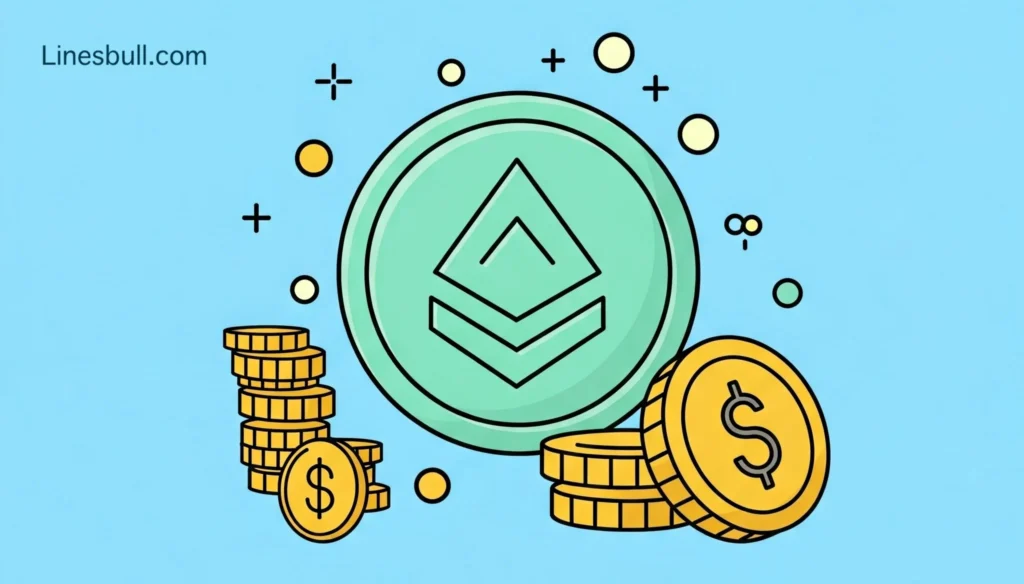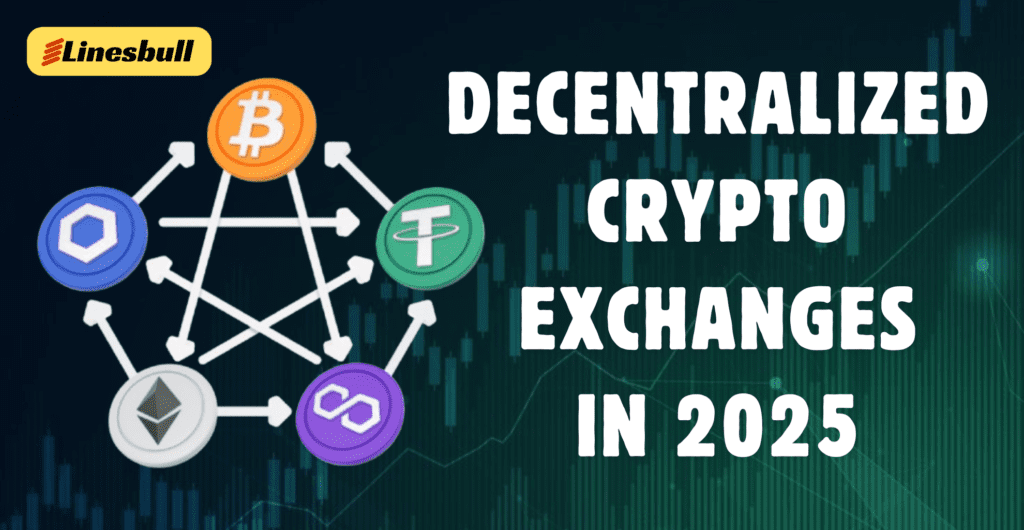Introduction
Crypto Exchanges in the World have completely changed how people buy and sell digital assets, making trading faster, easier, and more accessible than ever. They serve as platforms where users can buy, sell, and trade cryptocurrencies like Bitcoin, Ethereum, and thousands of other altcoins. These exchanges play a crucial role in the digital economy by providing liquidity, security, and access to a wide range of crypto assets.
With the increasing adoption of cryptocurrencies, the number of exchanges has also grown. Some platforms cater to beginners, while others focus on advanced traders with sophisticated tools and features. But with so many options available, how do you choose the best exchange? This article will explore the different types of Crypto Exchanges in the World, the top platforms globally, security measures, and future trends in the industry.
The Best Crypto Exchanges in the World for 2025
Cryptocurrency trading has gained immense popularity, and selecting the right exchange is crucial for security, liquidity, and trading efficiency. With numerous options available, finding the best crypto exchanges in the world can be overwhelming. This guide explores top exchanges, their features, fees, and security measures to help you make an informed decision.
What is a Crypto Exchange?
Crypto Exchanges in the World are digital marketplaces where traders buy, sell, and swap cryptocurrencies. They provide platforms with various features, including fiat-to-crypto conversion, leverage trading, staking, and decentralized finance (DeFi) integrations.
Definition and Purpose
A cryptocurrency exchange is an online platform that enables users to trade digital currencies. It acts as a middleman between buyers and sellers, facilitating transactions in exchange for a fee. These platforms provide real-time pricing, liquidity, and various trading options such as spot trading, margin trading, and futures contracts.
How It Works
Crypto exchanges operate similarly to stock exchanges. Users deposit funds (either fiat or cryptocurrency) into their accounts and place buy or sell orders. The platform matches these orders and executes trades. Some exchanges offer additional features like staking, lending, and NFT trading.
Depending on the type of exchange, users may have full control over their assets (decentralized) or entrust them to the platform (centralized). Understanding the differences is crucial when selecting the right exchange for your needs.
Types of Crypto Exchanges
Crypto Exchanges in the World can be broadly categorized into three types:
1. Centralized Exchanges (CEX)
- Most common type of exchange
- Examples: Binance, Coinbase, Kraken
- Pros: High liquidity, user-friendly interfaces, strong security features
- Cons: Requires KYC, susceptible to hacks
2. Decentralized Exchanges (DEX)
- No central authority; transactions are peer-to-peer
- Operates using smart contracts
- Examples: Uniswap, PancakeSwap, SushiSwap
- Pros: Greater privacy, no KYC required, increased security
- Cons: Lower liquidity, complex user experience
3. Hybrid Exchanges
- Combines the benefits of both CEX and DEX
- Offers security and privacy along with high liquidity
- Still a developing sector with few established players
Choosing between CEX and DEX depends on factors like security preferences, trading needs, and regulatory compliance.
Top Centralized Crypto Exchanges in the World

1. Binance
- Overview: One of the largest exchanges by trading volume.
- Key Features: Low trading fees, wide cryptocurrency selection, futures, and margin trading.
- Security: Two-factor authentication (2FA), SAFU fund for protection.
- Fees: 0.1% standard trading fee, discounts with BNB holdings.
- Best For: Active traders and professionals.
2. Coinbase
- Overview: A user-friendly exchange based in the U.S.
- Key Features: Fiat on-ramp, staking, and educational rewards.
- Security: FDIC-insured USD balances, biometric logins.
- Fees: High compared to competitors, with a maker-taker model.
- Best For: Beginners and institutional investors.
3. Kraken
- Overview: Known for its security and regulatory compliance.
- Key Features: Futures trading, staking, and OTC desk.
- Security: Cold storage, robust verification.
- Fees: 0.16% maker and 0.26% taker fees.
- Best For: Security-conscious traders.
4. KuCoin
- Overview: A global exchange with a wide selection of altcoins.
- Key Features: Margin and futures trading, passive income through lending.
- Security: Multi-factor authentication and insurance funds.
- Fees: 0.1% standard trading fee.
- Best For: Altcoin traders and lending investors.
5. Bybit
- Overview: A derivatives-focused exchange with leverage options.
- Key Features: Perpetual contracts, advanced charting tools.
- Security: Cold storage for funds, robust authentication.
- Fees: 0.075% taker fee and -0.025% maker rebate.
- Best For: Derivatives and leverage trading.
Continue Reading:
Top Decentralized Crypto Exchanges
Decentralized exchanges offer more privacy and control over assets. Here are some of the most well-known DEXs:
1. Uniswap
- The largest DEX on the Ethereum blockchain
- Uses automated market makers (AMM) for trading
- Supports ERC-20 tokens
2. PancakeSwap
- Built on the Binance Smart Chain
- Lower fees than Ethereum-based DEXs
- Popular for yield farming and staking
3. SushiSwap
- A fork of Uniswap with additional features
- Offers staking and governance through the SUSHI token
4. dYdX
- Specializes in derivatives and margin trading
- Runs on Ethereum layer-2 for low fees and fast transactions
5. Curve Finance
- Best for stablecoin trading
- Low slippage and minimal trading fees
DEXs provide a great alternative to centralized exchanges for users looking for anonymity and control over their funds.
How to Choose the Right Crypto Exchange
With hundreds of Crypto Exchanges in the World available, picking the right one can be overwhelming. When selecting the best crypto exchanges in the world, consider these factors:
1. Security and Reputation
- Ensure the exchange has robust security measures such as two-factor authentication (2FA), cold storage for funds, and insurance policies.
- Research the exchange’s history. Has it ever been hacked? How did it handle security breaches?
- Look for user reviews and ratings to gauge trustworthiness.
2. Trading Fees and Costs
- Compare fees, including trading fees, withdrawal fees, and deposit costs.
- Some exchanges offer discounts for using their native tokens (e.g., Binance’s BNB).
- Beware of hidden costs, especially when converting fiat to crypto.
3. Available Cryptocurrencies
- If you’re looking for specific altcoins, check whether the exchange supports them.
- Some platforms, like Binance and KuCoin, list hundreds of coins, while others, like Coinbase, offer fewer but more regulated options.
4. Liquidity and Volume
- High liquidity ensures smoother and faster trades with minimal price fluctuations.
- Leading exchanges like Binance and Coinbase generally have high liquidity.
5. User Interface and Experience
- If you’re a beginner, opt for a platform with an intuitive and simple interface (e.g., Coinbase).
- Advanced traders might prefer exchanges with more features like futures, options, and staking (e.g., Kraken, Binance).
Choosing the right exchange depends on your trading experience, security concerns, and the cryptocurrencies you wish to trade.
CEX: Pros and Cons of Centralized Exchanges
Advantages:
✅ User-Friendly – CEXs provide simple interfaces, making them ideal for beginners.
✅ High Liquidity – Large trading volumes ensure smoother transactions and price stability.
✅ Customer Support – Unlike DEXs, CEXs offer customer service for resolving issues.
✅ Fiat Support – Many CEXs allow direct fiat deposits and withdrawals.
Disadvantages:
❌ Security Risks – CEXs store funds on their platforms, making them attractive targets for hackers.
❌ Regulatory Issues – Some exchanges require extensive KYC (Know Your Customer) verification.
❌ Lack of Control – Users don’t have complete control over their private keys.
CEXs are ideal for convenience and liquidity but come with security trade-offs.
DEX: Pros and Cons of Decentralized Exchanges
Advantages:
✅ Greater Privacy – No need for KYC; users trade directly from their wallets.
✅ More Security – Funds remain in users’ wallets, reducing the risk of hacks.
✅ Censorship Resistance – No central authority controls transactions.
Disadvantages:
❌ Lower Liquidity – DEXs often have lower trading volumes compared to CEXs.
❌ Complexity – They require more technical knowledge and understanding of smart contracts.
❌ Limited Fiat Support – Most DEXs do not allow direct fiat deposits.
DEXs are great for security-conscious users but can be difficult for beginners
The Significance of Cryptocurrency Exchanges in the Worldwide Economic Landscape.
Crypto exchanges are more than just trading platforms; they play a significant role in shaping the financial landscape.
1. Facilitating Global Transactions
- Crypto exchanges enable cross-border transactions without intermediaries.
- They provide financial access to people in regions with unstable banking systems.
2. Impact on Financial Inclusion
- Unbanked individuals can participate in global finance through Crypto Exchanges in the World.
- Some platforms offer DeFi (decentralized finance) services, such as lending and staking, empowering users financially.
3. Influence on Market Trends
- Major exchanges like Binance and Coinbase significantly impact cryptocurrency prices.
- New coin listings often lead to price surges due to increased visibility and demand.
As crypto adoption grows, exchanges will continue to shape the future of finance.
Security Measures in Crypto Exchanges
Security is one of the biggest concerns for crypto traders. Here’s how top exchanges protect users:
1. Two-Factor Authentication (2FA)
- Requires an extra layer of verification for logging in or withdrawing funds.
2. Cold Storage vs. Hot Wallets
- Cold storage: Keeps funds offline, reducing hacking risks.
- Hot wallets: Used for active trading but more vulnerable to attacks.
3. KYC and AML Regulations
- Many CEXs enforce Know Your Customer (KYC) and Anti-Money Laundering (AML) policies to prevent illegal activities.
- Some users prefer DEXs to avoid these requirements.
To stay secure, always use strong passwords, enable 2FA, and store funds in cold wallets.
Future Trends in Crypto Exchanges
The crypto exchange landscape is constantly evolving. Here are some trends shaping the future:
1. The Rise of Hybrid Exchanges
- Combining CEX and DEX features to offer security and liquidity.
2. AI and Automation in Trading
- AI-powered bots are increasingly used for automated trading strategies.
3. Regulation and Compliance Trends
- Governments worldwide are introducing stricter crypto regulations, affecting exchange operations.
The industry is moving toward a balance between security, decentralization, and regulatory compliance.
The Impact of Regulations on Crypto Exchanges
1. Different Regulatory Frameworks Worldwide
- Some countries, like the U.S. and UK, have strict crypto regulations.
- Others, like El Salvador, have embraced Bitcoin as legal tender.
2. How Regulations Affect Users and Exchanges
- Increased KYC requirements for CEXs.
- Some exchanges geo-block users from specific regions.
Regulations can bring legitimacy but may also limit accessibility.
How to Safely Trade on Crypto Exchanges
Best Security Practices:
✔️ Use strong passwords and enable 2FA.
✔️ Store large amounts in cold wallets.
✔️ Avoid phishing scams and fake exchange websites.
Avoiding Scams and Frauds:
- Always verify the exchange’s official website before logging in.
- Be cautious of Ponzi schemes and suspicious investment offers.
Staying informed is key to securing your crypto assets.
Comparing Fees Across Major Crypto Exchanges
| Exchange | Trading Fees | Withdrawal Fees | Special Discounts |
|---|---|---|---|
| Binance | 0.1% | Varies | Discounts with BNB |
| Coinbase | 0.5%+ | High | None |
| Kraken | 0.16%–0.26% | Low | None |
| KuCoin | 0.1% | Medium | Discounts with KCS |
| Uniswap (DEX) | Varies (gas fees) | None | No trading fees, only network fees |
Understanding fee structures helps traders optimize their profits.
Conclusion
Crypto exchanges are the backbone of the digital asset economy. Whether you choose a centralized exchange like Binance or a decentralized platform like Uniswap, each has its advantages and challenges.
Security, fees, liquidity, and regulatory compliance should all factor into your decision. As crypto adoption grows, exchanges will continue to evolve, shaping the financial future.
FAQs About Crypto Exchanges in the World
1. What is the safest crypto exchange?
Kraken and Coinbase are among the safest exchanges due to their security measures, insurance policies, and regulatory compliance.
2. Which crypto exchange has the lowest fees?
Binance and KuCoin offer some of the lowest fees, especially when using their native tokens for discounts.
3. Can I trade crypto without KYC verification?
Some exchanges, like certain DEXs, allow trading without KYC. However, centralized exchanges require verification for withdrawals and higher limits.
4. Which exchange is best for beginners?
Coinbase and Binance are beginner-friendly due to their easy interfaces and educational tools.
5. Are crypto exchanges legal worldwide?
Regulations vary by country. Some nations impose strict rules, while others embrace cryptocurrency trading.
Final Thoughts of Linesbull
Choosing the best crypto exchanges in the world depends on your trading needs, security preferences, and asset selection. Whether you prefer a centralized exchange for ease of use or a decentralized platform for anonymity, conducting thorough research ensures a safe and profitable trading experience.







